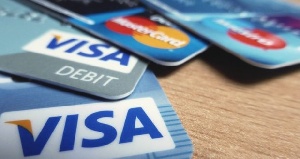Almost every smallholder farmer receiving agricultural payments in Ghana is paid in cash. While cash may seemingly provide instant gratification for crop sales, cash-based transactions ultimately prove to be costly and dangerous.
Cash can easily be misplaced or stolen, leaving the carrier with no recourse. When cash changes hands there is little record of the transaction, this could make accountability difficult.
The cocoa sector is one of Ghana’s economic strongholds. Ghana is not only the second largest producer of cocoa in the world, but it produces the world’s highest quality cocoa. The cash crops account for about 9% of Ghana’s GDP and make up about one-third of the country’s export revenues, totaling over US$ 1.5 billion.
In Ghana, cocoa is purchased from smallholder farmers by local companies known as Licensed Buying Companies (LBCs) on behalf of the central government. The LBCs have maintained agent networks that facilitate the purchasing of cocoa from smallholders. Typically LBCs have a zone manager who supervises and aggregates cocoa from many district managers.
District managers work with about 15-30 community agents called purchasing clerks who live with or around cocoa farmers and buy the cocoa directly from these farmers for the LBCs. From the district manager to the rural cocoa farmer, all transactions are cash-based.
The current cash-based transactional system poses serious security threats to district managers, purchasing clerks and even farmers. Purchasing clerks are frequently robbed at gunpoint as they are known to carry huge sums of cash on them to buy cocoa. Cash provided by LBCs and traders for cocoa purchasing is consistently being stolen or misplaced by purchasing agents. Digital payments improve this challenge.
On top of the security risks associated with cash-based transactions, LBCs are unable to efficiently track and ensure payment of cocoa beans from the buyer really ends up into the hands of the smallholder who deserve it. Cash-based transactions are nearly impossible to track effectively and efficiently. It is a slow and outdated process.
As a physical commodity that can move no faster than the humans transporting it, cocoa farmers usually have to wait 2-3 weeks before receiving payments for their produces.
Considering all the inefficiencies and risks associated with cash-based transactions, it is shocking, LBCs in Ghana have not made significant efforts to speed adoption of digital payments in their operations. Government and payment service providers struggle to invest in rural digital payment systems and infrastructure, because they see smallholders as too far, too small and too poor to serve them.
Perhaps there aren’t enough scalable digital payment innovations focusing on the agricultural sector in Ghana or there is a lack of conscious education and capacity building on the benefits and need for digital payments. Other barriers include high transactional charges on mobile money enabled digital payment systems, especially in rural areas where local mobile money agents can double transactional charges, and lack of incentives to push providers to promote digital payment system in Ghana.
Fortunately, organizations like Farmerline have taken the lead in providing agribusinesses with a digital payment system called Paytime, which allows bulk disbursements and collection of funds through mobile money with reduced transaction cost. Farmerline’s technology offers a huge opportunity for LBCs and agribusiness to scale digital payment in the cocoa sector.
What we can leverage on
In Ghana, mobile phone penetration is as high as 131% (NCA, 2017). A research conducted by World Cocoa Foundation in 2014 revealed, there is 80% mobile money awareness among the cocoa farmers. Fifty-two percent of the farmers have a mobile money wallet, and 46% of farmers have had experience using mobile money services. These are strong foundations to leverage digital payments among farmers. Notwithstanding these, mobile connectivity remains poor in rural areas. And mobile money access is low in some farming communities.
What Can be Done To Promote Digital Payments in the Agriculture Sector
Agribusiness: Agribusinesses such as cocoa buying companies must demonstrate the commitment to the security and welfare of their local purchasing agents and their farmers.
They must build strong partnerships with digital payment system providers like Farmerline to offer these solutions to their farmers. NGOs and developmental organizations could use their existing agent network to advance mobile money access in the rural communities.
Governments: The government of Ghana through the Ministry of Food and Agriculture must lead and encourage adoption of digital payment systems by building capacities of extension officers to incorporate training on advantages and use of digital payments into existing channels for agricultural education.
Additionally, government can give good incentives packages to Mobile Money Operators focusing on digital payment systems in the agricultural sector to expand access to rural communities. Improved mobile connectivity in rural communities is key, governments must facilitate this.
Payment and Mobile Money Service Providers: Digital payment systems offer many benefits to smallholders and organizations working with them in ways such as security, cost-savings, increased efficiency and transparency, but cash is still widely seen by smallholders and agribusinesses as a “cost-free” option.
In order to facilitate the adoption of mobile money payments in agriculture, it is crucial that payment and mobile money service providers begin to address the single most challenging barrier to adoption – the cost to the end user (transaction and cash withdrawal fees).
Research and Piloting: Agribusiness and stakeholders must conduct needs assessment research to fully understand farmers’ financial needs and services in order to provide good services to farmers. Farmers adopt and regularly use services that meet a broader range of their needs, digital financial services must, therefore, consider this.
Digital payment has a huge opportunity to improve Ghana’s cocoa sector, given market conditions, boldness and implementation are the next key steps required.
Opinions of Tuesday, 13 March 2018
Columnist: Schandorf Adu Bright















